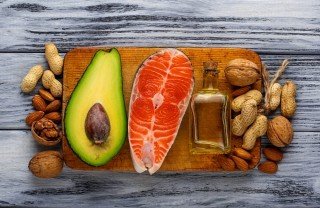From a young age, we are taught to take our vitamin supplements daily. They are supposed to make us stronger, healthier, and help us enjoy better immunity against illness. Nowadays, however, the buzz is asking whether your vitamins are doing what they’re supposed to – and whether it’s possible that they’re not quite as good for us as we always thought.
Dr. Dhesan Moodley is a functional and anti-aging specialist. He says that, while vitamins are beneficial for your health, special precautions need to be taken in certain circumstances. The following are instances where vitamins can become dangerous.

1. Excess fat-soluble vitamins (such as Vitamins A, D, E, and K) cannot be easily excreted from your body.
As a result, they can be harmful if they accumulate in your body. For example, excess amounts of vitamins can result in breakdown and red blood cells, as well as liver damage. Therefore, if you are taking blood-thinning drugs or anticoagulants, it is important to moderate your intake of foods containing vitamin K. This is because it can alter blood clotting times.
As for vitamin D – high levels of this vitamin in the blood can accumulate in the liver and cause signs of poisoning. Babies and small children, especially, should not have a too-high intake of these vitamins, because of their size.
“You should [therefore] not take too many of these [fat-soluble] vitamins,” says Dr. Moodley. “In comparison, excess water-soluble vitamins (such as Vitamins C and B complexes) are easily excreted in your urine and sweat. As such, high doses of water-soluble vitamins are not harmful unless your kidneys are compromised.”
What Are the Tolerable Upper Intake Levels (UL) for Fat-Soluble Vitamins?
In adults, vitamin A is set at 3000 mcg/d, vitamin D is set at 100, vitamin E at 1000 mg a-TE. Vitamin K was not disclosed. Find out more about how much of each vitamin is appropriate for different age and gender groups.
2. Excess amounts of certain minerals can also accumulate in your body.
When this happens, unwanted effects can also follow. As we age, high doses of calcium build up in the blood vessels, causing hardening and blockages of the vessels. This is called atherosclerosis, and it is considered to be one of the main causes of heart disease. When that happens, issues such as blood flow obstruction can follow.
Who needs to take multivitamins?
As most of our foods are commercially farmed, they may be low in many essential nutrients. Hence all of us, including the young and healthy, should be on certain multivitamins and supplements. These supplements are especially important for the chronically ill and elderly as their food intake may be low. Also, coping with their illnesses may require more supplements.
What about the nutrients in GMO foods and crops that have been treated with pesticides?
GMO foods and foods sprayed with pesticides are harmful to your health and have been implicated in many illnesses ranging from mild allergies to more serious conditions such as asthma, autism, learning disabilities, birth defects, diabetes, Parkinson’s, Alzheimer’s, and cancers. Organic foods can avoid these risks.
How can you regularly optimize your required vitamin intake?
Dr. Moodley explains that when you’re looking for specific nutrients, certain foods can help because they are high in those nutrients. If you’re looking for:
- Omega 3
Then you should opt for oily, cold-water fish, such as salmon and sardines. These fish contain high amounts of Omega 3, which is important for preventing and managing heart disease. Find out what other benefits Omega 3 has.
- Antioxidants and water-soluble vitamins to battle free-radicals
Increase your intake of green leafy vegetables, such as lettuce, kale, and spinach. Eat these as raw as possible for the best results.
- Vitamins and nutrients that support liver detoxification
Eat lots of cruciferous vegetables, such as cabbage, cauliflower, broccoli, and Brussels sprouts.
- Iron and protein for muscle growth and repair
Opt for lean meats, such as beef, lamb, chicken, and turkey.
- Nutrients that will aid gut health
Go with the allium family of vegetables (garlic, onion, spring onion).
- Nutrients that will help to reduce inflammation in the body
Ginger and turmeric have anti-inflammatory properties that can help battle inflammation.
- Folate for healthy red blood cells, preventing bone loss and Alzheimer’s. Find out why folate is so important, especially for pregnant women.
On the other hand, a lot of foods are just the opposite
Because of their harmful effects, we should avoid trans- fats (fried food), refined carbohydrates (bread, biscuits, cakes, pasta, pizza, most cereals), and excess saturated fat (animal fat).
How should one find the multivitamin that is right for you?
“It is best to consult your doctor to determine which vitamins and minerals you may be deficient in,” says Dr. Moodley. “Your doctor can determine this by conducting laboratory tests. Generally, all of us should be on Omega 3 and a good multivitamin. People over 50 years may need additional vitamins such as Vitamin Bs, Cs, D, and K as well as carnitine. Diabetic patients will also benefit from alpha-lipoic acid and chromium. Certain diabetic medications deplete Vitamin B12. Patients on Statins require CoQ10 supplementation. The purity of vitamins varies and it is difficult to determine which brand of supplements is better. It is best to ask your pharmacist or doctor about the more reputable brands.”





![women [longevity live]](https://longevitylive.com/wp-content/uploads/2020/01/photo-of-women-walking-down-the-street-1116984-100x100.jpg)











One Comment